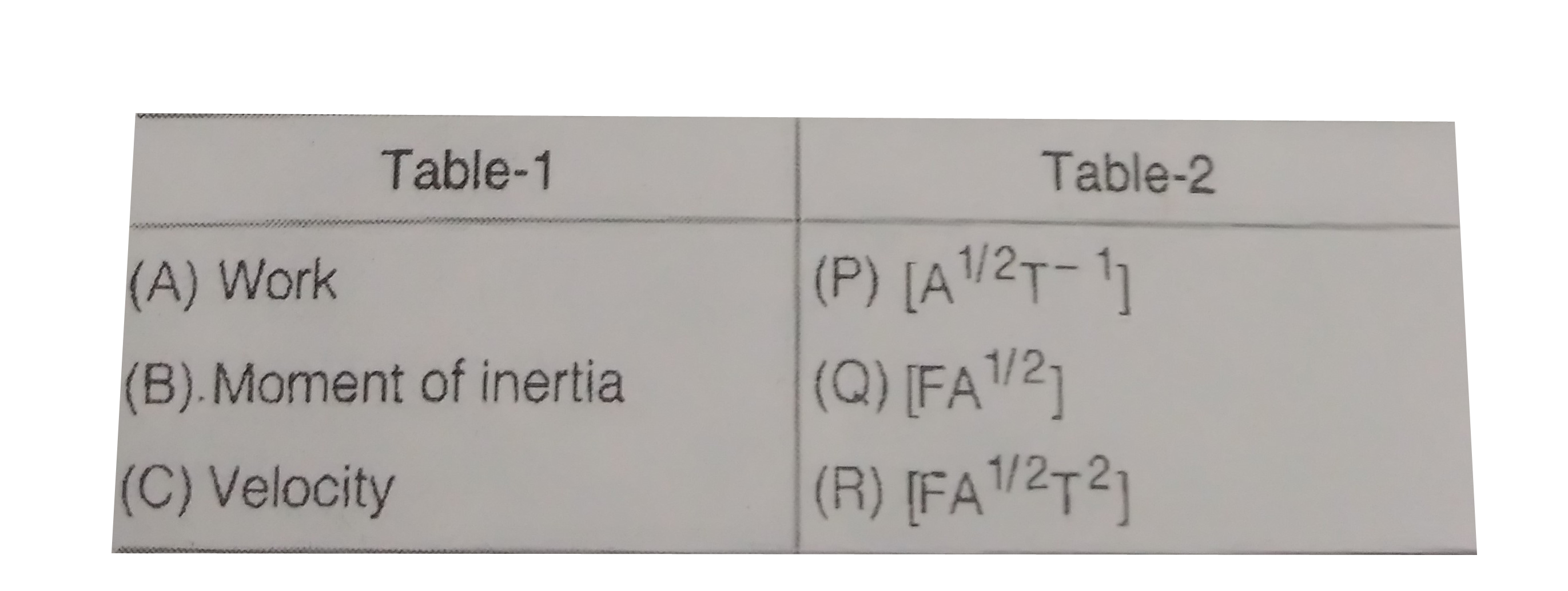The fundamental unit is :
newton
pascal
hertz
second
The correct Answer is:D
To determine which of the given options is a fundamental unit, we will analyze each option based on whether it is a fundamental unit or a derived unit.
1. Identify the Options: The options given are:
- Option 1: Newton
- Option 2: Pascal
- Option 3: Hertz
- Option 4: Second
2. Analyze Option 1: Newton:
- Newton (N) is the SI unit of force.
- Force is a derived quantity because it is calculated using mass and acceleration (F = m*a).
- Therefore, Newton is a derived unit.
3. Analyze Option 2: Pascal:
- Pascal (Pa) is the SI unit of pressure.
- Pressure is also a derived quantity, defined as force per unit area (P = F/A).
- Thus, Pascal is a derived unit.
4. Analyze Option 3: Hertz:
- Hertz (Hz) is the SI unit of frequency.
- Frequency is defined as the reciprocal of the time period and is derived from time.
- Hence, Hertz is a derived unit.
5. Analyze Option 4: Second:
- Second (s) is the SI unit of time.
- Time is a fundamental quantity and does not depend on other quantities.
- Therefore, second is a fundamental unit.
6. Conclusion:
- Among the given options, only "Second" is a fundamental unit.
- Thus, the correct answer is Option D: Second.
- Option 1: Newton
- Option 2: Pascal
- Option 3: Hertz
- Option 4: Second
- Newton (N) is the SI unit of force.
- Force is a derived quantity because it is calculated using mass and acceleration (F = m*a).
- Therefore, Newton is a derived unit.
- Pascal (Pa) is the SI unit of pressure.
- Pressure is also a derived quantity, defined as force per unit area (P = F/A).
- Thus, Pascal is a derived unit.
- Hertz (Hz) is the SI unit of frequency.
- Frequency is defined as the reciprocal of the time period and is derived from time.
- Hence, Hertz is a derived unit.
- Second (s) is the SI unit of time.
- Time is a fundamental quantity and does not depend on other quantities.
- Therefore, second is a fundamental unit.
- Among the given options, only "Second" is a fundamental unit.
- Thus, the correct answer is Option D: Second.
Topper's Solved these Questions
- BOOK - ICSECHAPTER - MEASUREMENTS AND EXPERIMENTATION EXERCISE - EXERCISE 1(A) (Numerical)8videos
MEASUREMENTS AND EXPERIMENTATION
- BOOK - ICSECHAPTER - MEASUREMENTS AND EXPERIMENTATION EXERCISE - EXERCISE 1(B)34videos
MEASUREMENTS AND EXPERIMENTATION
- BOOK - ICSECHAPTER - MEASUREMENTS AND EXPERIMENTATION EXERCISE - EXERCISE 1(A)51videos
MEASUREMENTS AND EXPERIMENTATION
- BOOK - ICSECHAPTER - MAGNETISM EXERCISE - EXERCISE-10(B) (Multiple Choice Type)2videos
MAGNETISM
- BOOK - ICSECHAPTER - MOTION IN ONE DIMENSION EXERCISE - EXERCISE -2 (C) ( Multiple choice type :)17videos
MOTION IN ONE DIMENSION
Similar Questions
Knowledge Check
- Question 1 - Select One
the speed of light c, gravitational constant G, and Planck’s constant h are taken as the fundamental units in a system. The dimension of time in this new system should be,
AG1/2h1/2C−5/2BG1/2h1/2C1/2CG1/2h1/2C−3/2DG1/2h1/2C1/2
How are the following derived units related to the fundamental units ?
wattView SolutionHow are the following derived units related to the fundamental units ?
newtonView SolutionHow are the following derived units related to the fundamental units ?
pascalView SolutionSuppose force (F) , area (A) and time (T) are the fundamental units, then match the following
 View Solution
View SolutionHow are the following derived units related to the fundamental units ?
(a)Newton , (b)Watt , (c ) Joule , (d) PascalView SolutionIf Surface tension (S) ,Moments of Inertia (I) and Plank's Constant(h), Where to be taken as the fundamental units, the dimentional formula for linear momentum would be:
View SolutionIf Surface tension (S), Moment of Inertia (I) and Planck’s constant (h), were to be taken as the fundamental units, the dimensional formula for linear momentum would be :
View Solution

